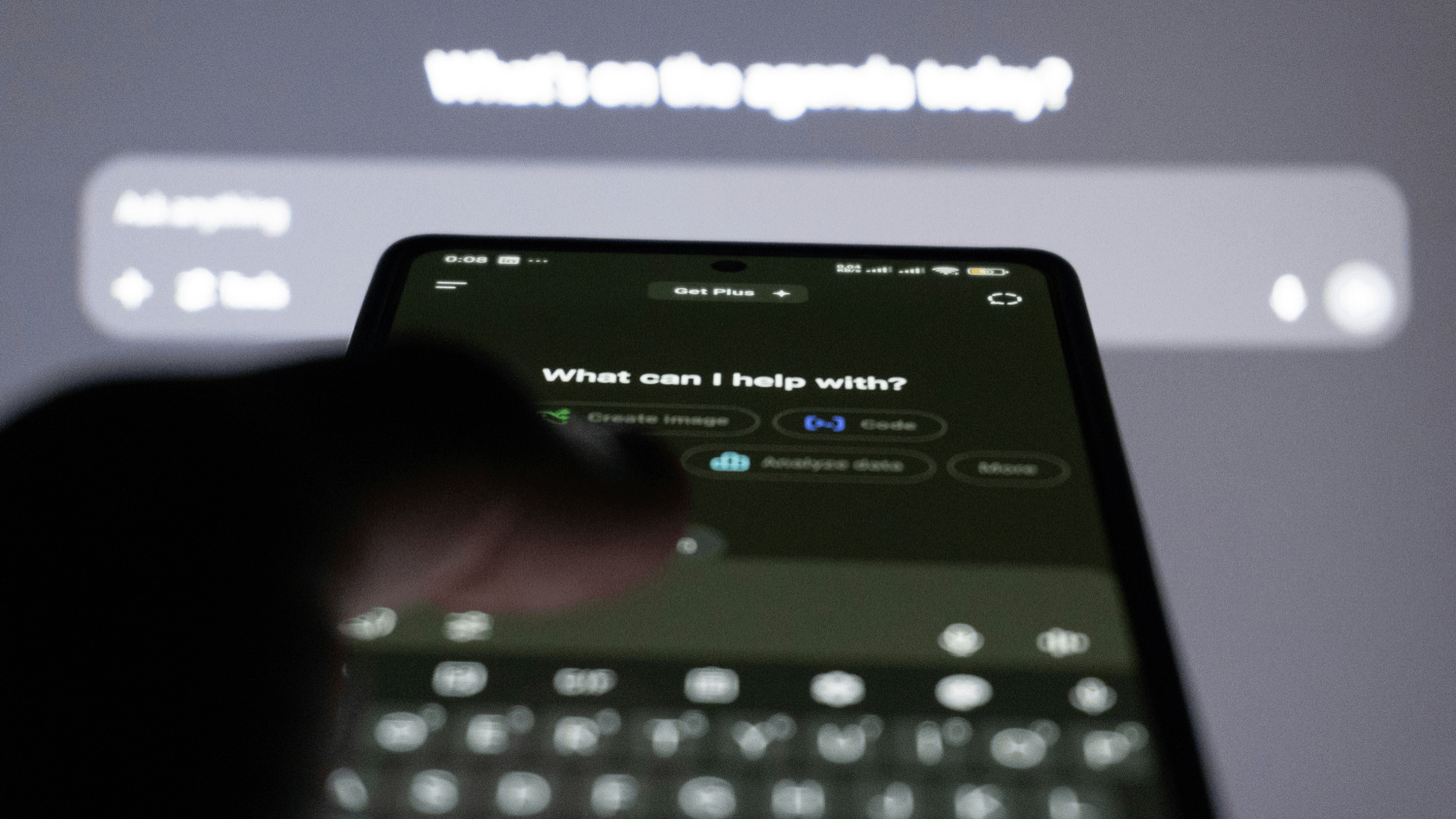
Gener8's data shows that Generative AI usage is dominated by a small, distinct group of ‘power users’, with clear trends emerging across gender, age, education, and employment
At Gener8, our unique ability to connect anonymised clickstream data with verified user demographics provides a powerful lens through which to understand digital behaviour. We recently applied this methodology to one of the most explosive technology trends of our time: Generative AI.
While platforms like ChatGPT, Google Gemini, and Claude have entered the public consciousness, our analysis sought to understand usage frequency. We know millions of people visit these sites, but how is that activity distributed? Is everyone using GenAI a little, or are a few users using it a lot?
To answer this, we analysed our UK clickstream September 2025 data, looking specifically at how often users visit these key GenAI platforms. This dataset was demographically weighted to be Nationally Representative of the UK Online Population, giving us a clear and accurate picture of the trend.
What we found points directly to a classic economic theory: the Pareto principle.
The Pareto principle, or the 80/20 rule, posits that roughly 80% of outcomes come from 20% of the inputs. In our context, this would mean 20% of users are responsible for 80% of the activity.
When we analysed web visits to top GenAI platforms in September 2025, this principle was proven to be scarily accurate.
The top 20% of users were responsible for 79% of all visits.
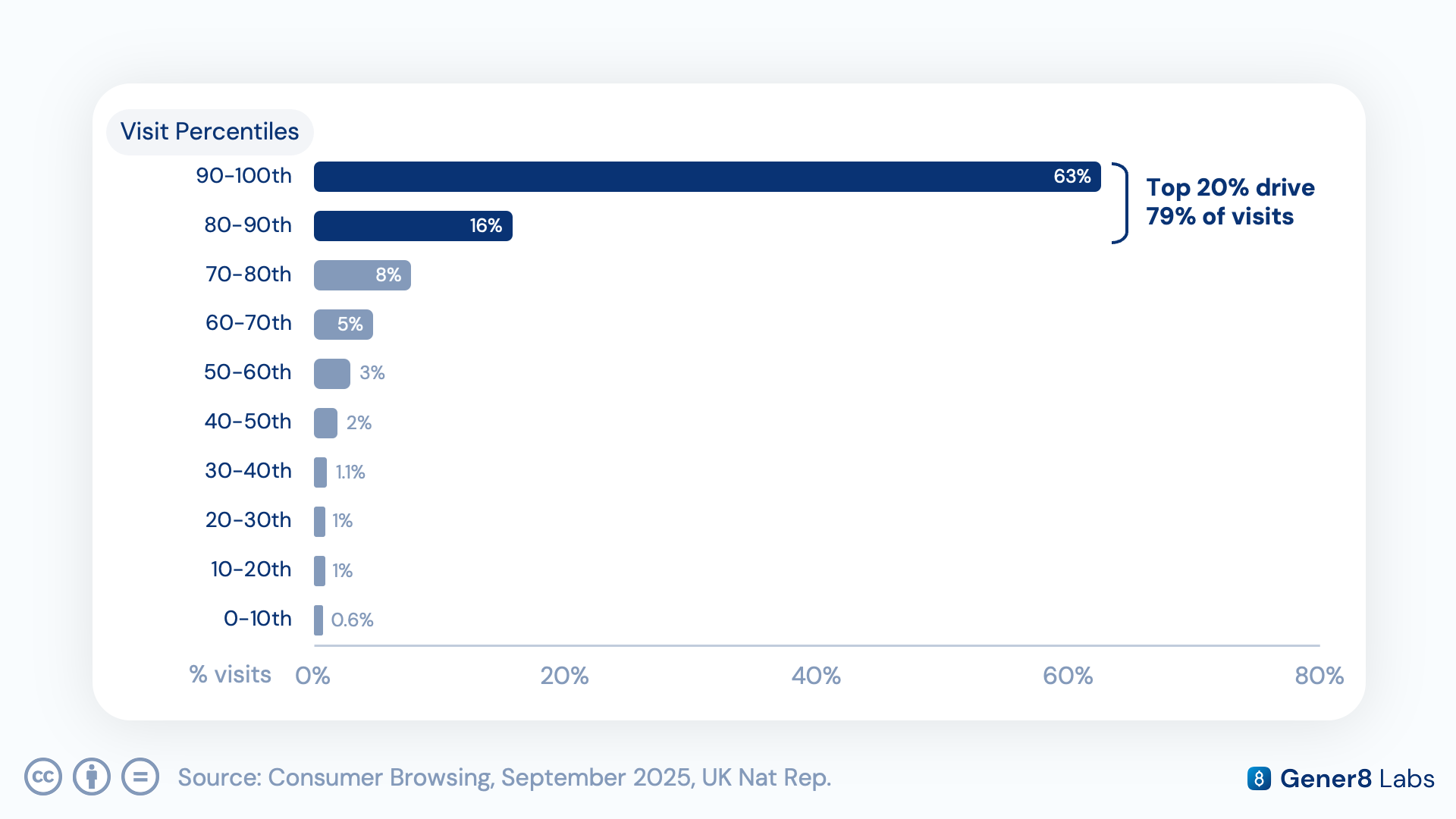
This confirms that a dedicated minority of users drives the vast majority of GenAI traffic. But the data reveals an even more concentrated core of ‘power users’. When we narrowed our focus, we found that the top 10% of visitors were responsible for 63% of all visits.
This staggering concentration highlights just how much these platforms rely on a small base of heavy users. This isn't a tool used equally by all, it's one that has become deeply embedded in the routines of a select group.
This immediately begs the question: Who are these top 10% power users? Our demographic data provides a clear picture.
For this analysis, we indexed the representation of different demographic groups within this top 10% percentile against the average GenAI user.
Overall, men are slightly overrepresented in GenAI usage (i105). However, when looking at the top 10% power user bracket, this gap widens significantly.
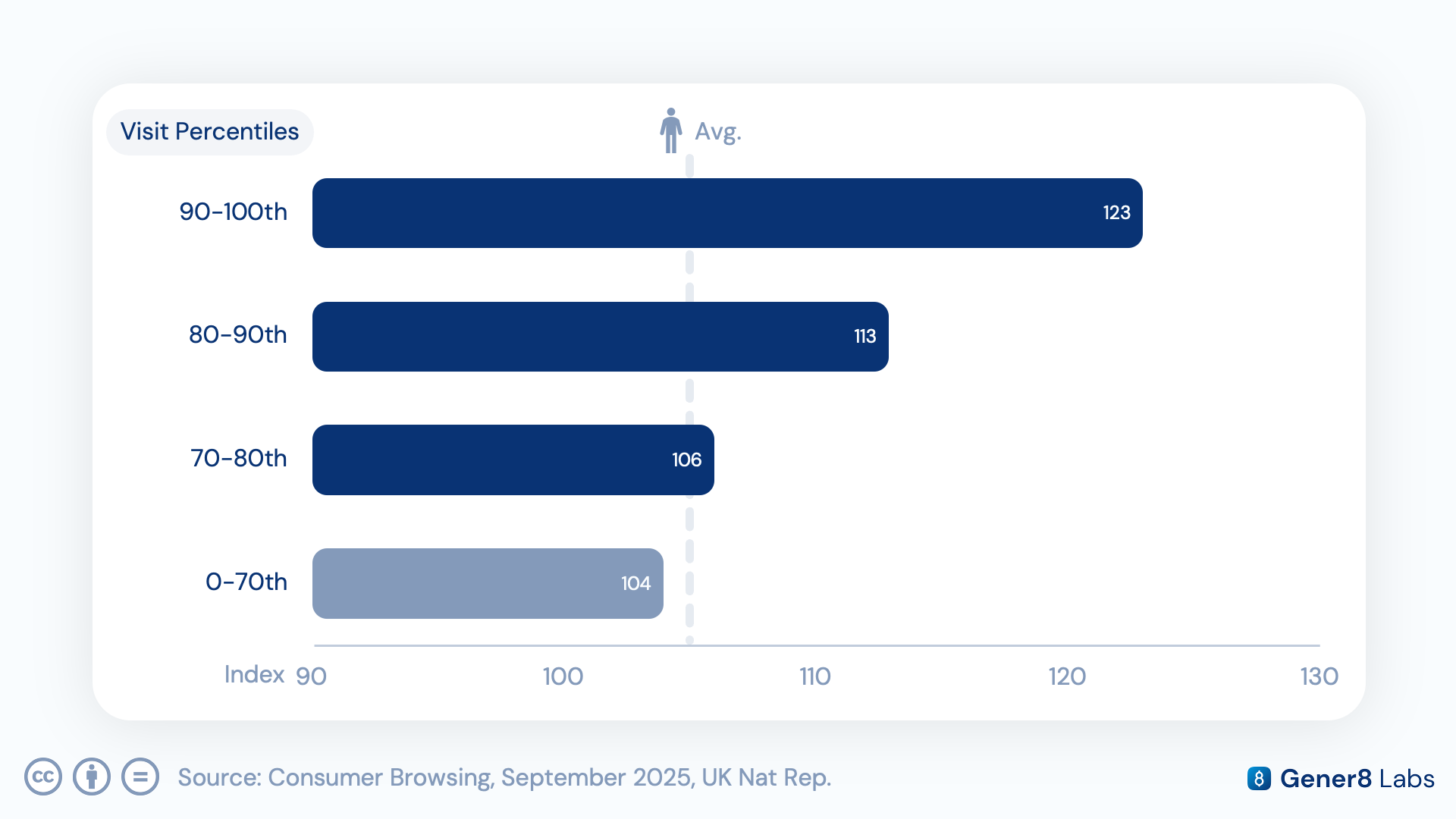
This ‘power usage’ is also more concentrated within the male cohort. The top 10% of male users account for 66% of all visits from men. By comparison, the top 10% of female users account for 58% of all visits from women.
While GenAI is often associated with younger, digital-native generations, our data shows the most intense usage comes from professionals in their prime working years.
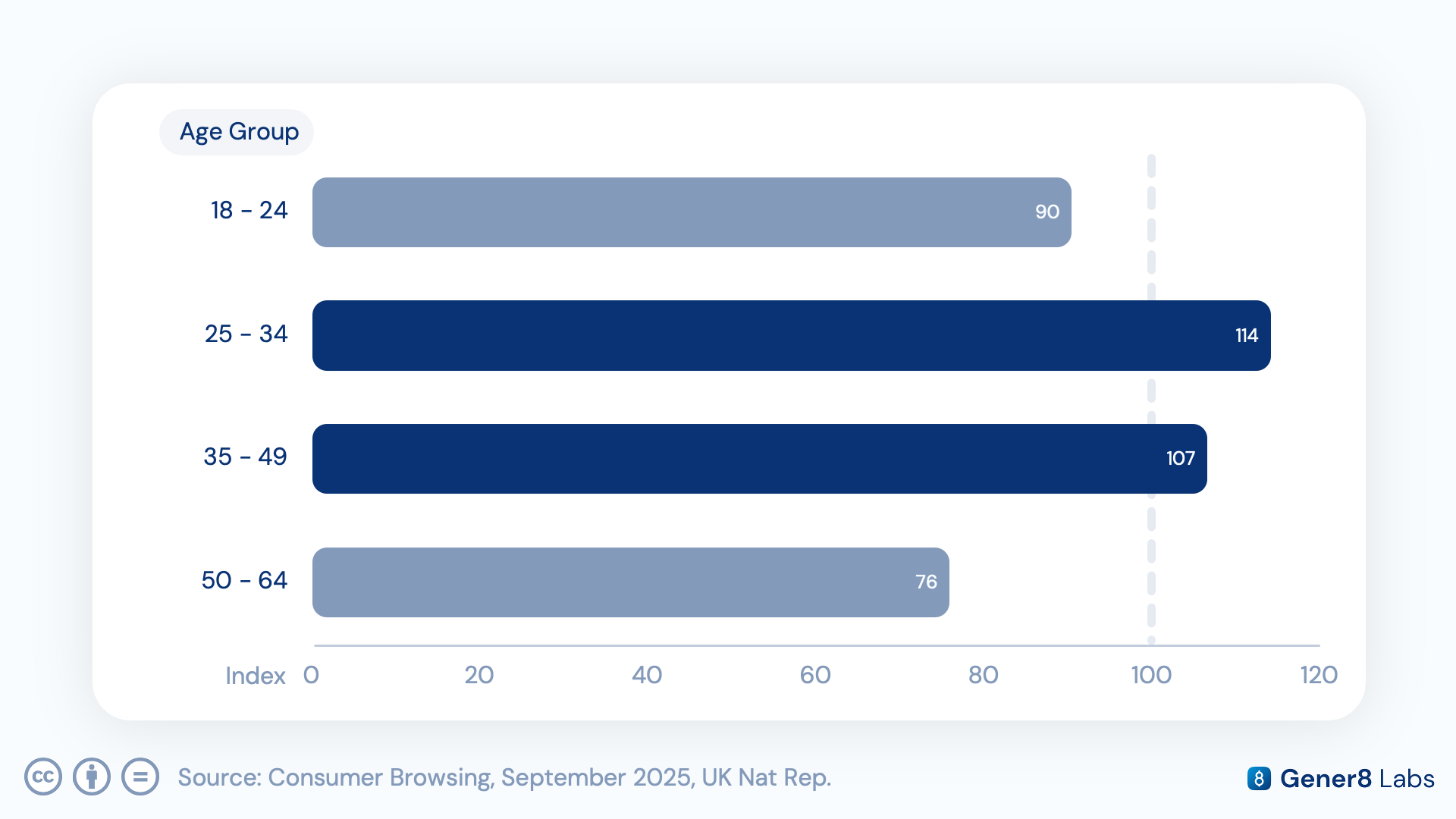
This suggests that while students and older workers use these tools, the core power users are those who have likely integrated GenAI into their daily professional workflows.
There is a clear and direct correlation between educational attainment and power usage.

Furthermore, the intensity of use varies. For users with high school, bachelor's, or advanced degrees, their respective top 10% drive 63-64% of their group's total visits. For those with less than a high school degree, their top 10% accounts for only 47% of their visits. This strongly suggests that work and career paths associated with higher education are intricately linked to high-frequency GenAI usage.
Perhaps the most fascinating insight comes from employment status. While those in full-time work are evenly represented among power users (i101), two groups stand out dramatically:
Conversely, those in part-time employment are underrepresented (i79).
Somewhat surprisingly, students also underindex in the top 10% (i90). This finding suggests that while overall student usage is commonplace (likely for assignments and research), the day-in, day-out intensity of use is not as high as it is for working groups, particularly those who are self-reliant.
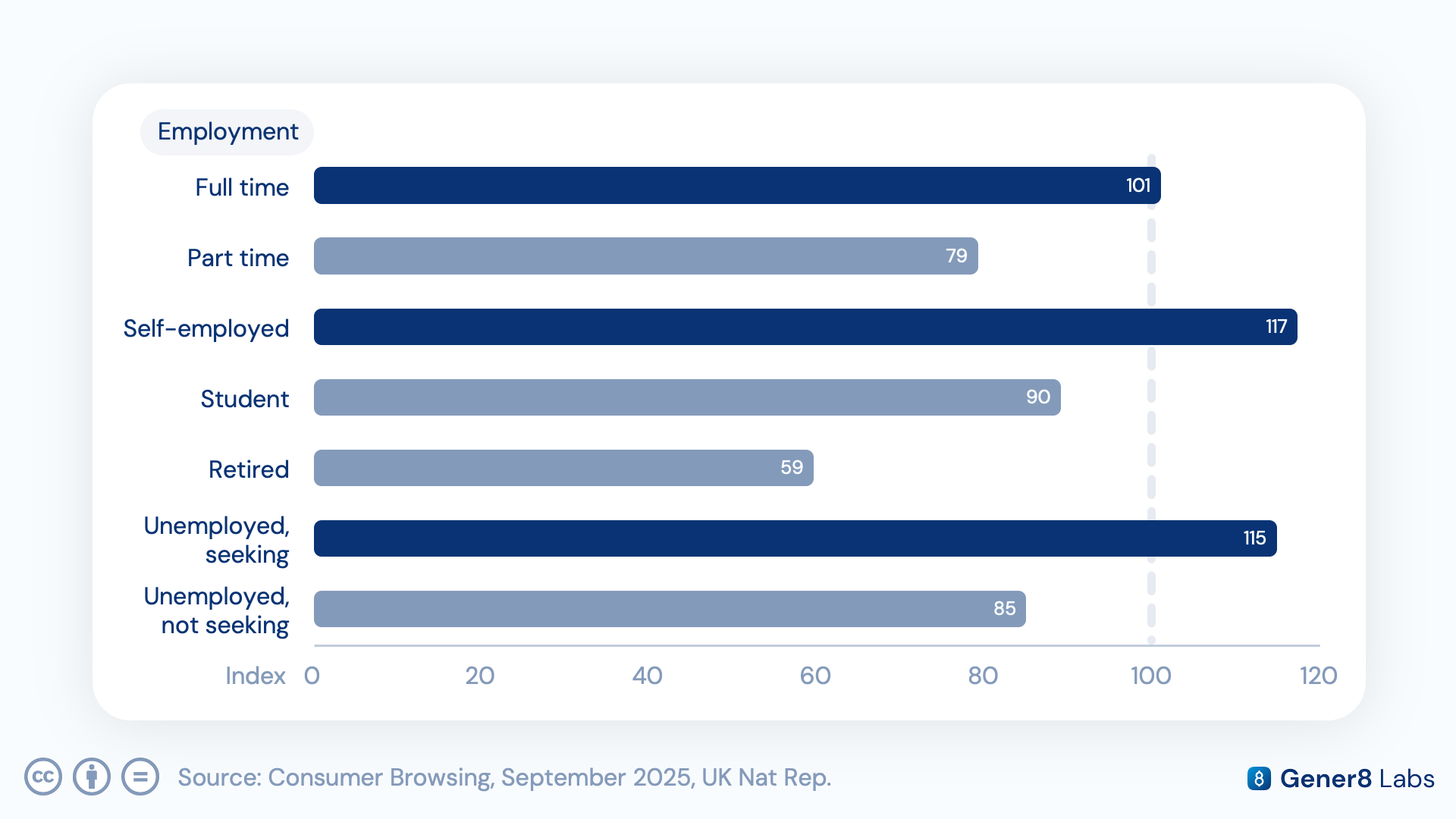
We utilised Gener8's Consumer Browsing and Demographics datasets to deep dive into the GenAI platform usage trends in the UK.
Gener8 Labs’ complete data and insights solution empowers media and marketing businesses to find actionable consumer and market insights, using our unique, consented, first party panel data sets that are all connected around one user ID.
Discover how you can power your decisions and gain a competitive edge from our behavioural truth set by contacting us today!



